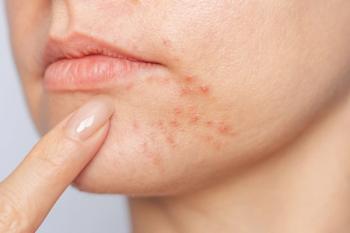
Depression, Distress Different Between Patients Treated with Isotretinoin and Oral Antibiotics
A recent study found acne patients treated with isotretinoin experienced less symptoms of depression and psychological distress than compared to those treated with oral antibiotics.
A study published in the Journal of Drugs in Dermatology found certain systemic acne treatments, such as isotretinoin and oral antibiotics, have different effects on patients’ mental health.1
Acne is one of the most common skin diseases, the authors wrote, and has also been found to increase the risk for developing anxiety and depression in patients.
“The impact of systemic anti-acne treatments on mental health is not well studied," wrote Hekmatjah J, Chat VS, Sierro TJ et al. "For example, controversy exists regarding the effects of isotretinoin on depression and suicidal ideation. At the present, a critical knowledge gap exists in defining the association between systemic anti-acne treatments and mental health outcomes.”
In the study, researchers set out to determine if differences in mental health exist in acne patients treated with either two of the most commonly prescribed treatments—isotretinoin or oral antibiotics (doxycycline, minocycline, or tetracycline).
Researchers analyzed the population from the 2004-2017 Medical Expenditure Panel Survey, where symptoms of depression were recorded using Patient Health Questionnaire 2 (PHQ-2). Psychological distress was also measured by the Kessler 6-Item Psychological Distress Scale (K6). Patients completed both PHQ-2 and K6 during treatment with either isotretinoin or oral antibiotics.
The study authors note lower scores on both PHQ-2 and K6 indicate better mental health outcomes.
Following adjustment for socio-demographic characteristics, results of the study found the mean PHQ-2 scores for isotretinoin was 0.280 versus oral antibiotics 0.656, with a 0.337 difference.
Additionally, results showed K6 scores as 2.494 isotretinoin compared to 3.433 oral antibiotics, with a 0.759 difference.
The study ultimately found acne patients treated with isotretinoin experienced less symptoms of depression and phycological distress than compared to those treated with oral antibiotics.
Reference:
1. Hekmatjah J, Chat VS, Sierro TJ et al. Differences in Depression and Distress Between Acne Patients on Isotretinoin vs Oral Antibiotics. J Drugs Dermatol. 2021;20(2):172-177. doi:10.36849/JDD.5559
Newsletter
Like what you’re reading? Subscribe to Dermatology Times for weekly updates on therapies, innovations, and real-world practice tips.












